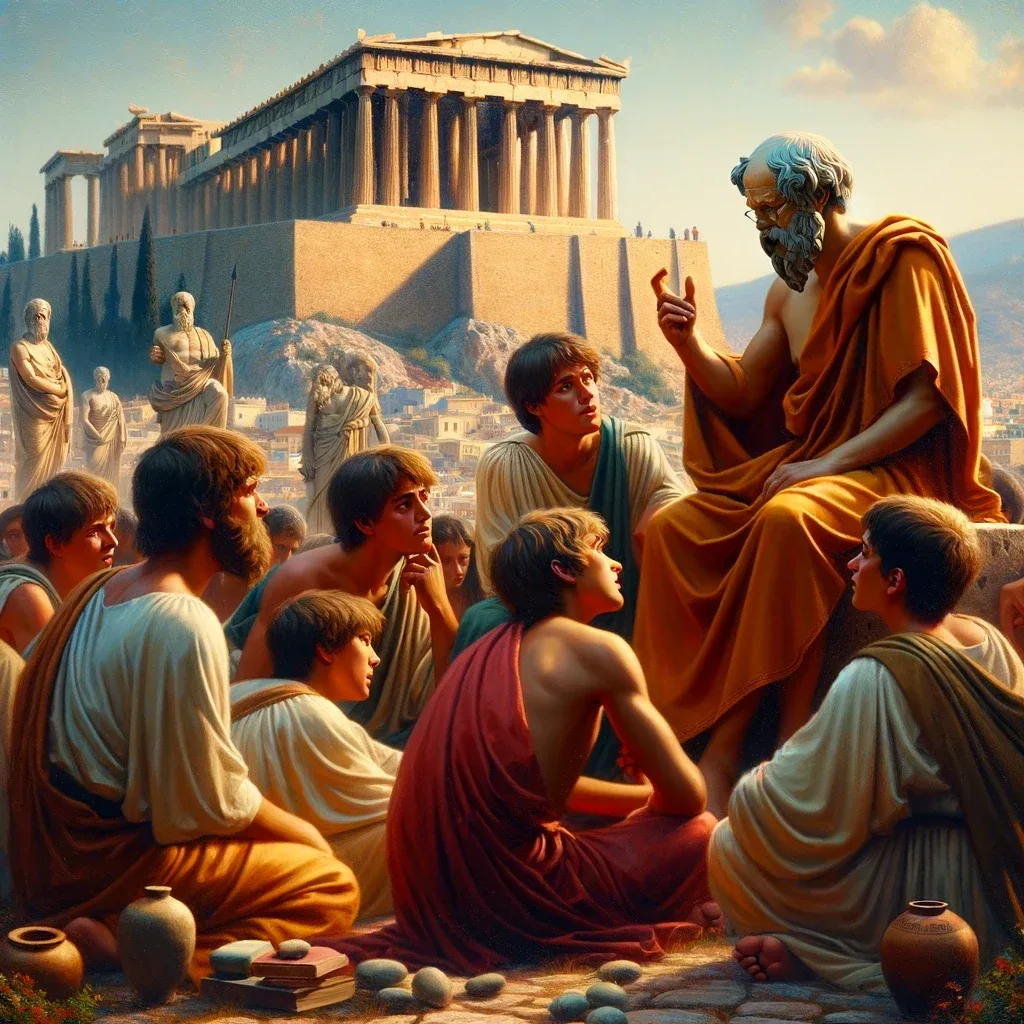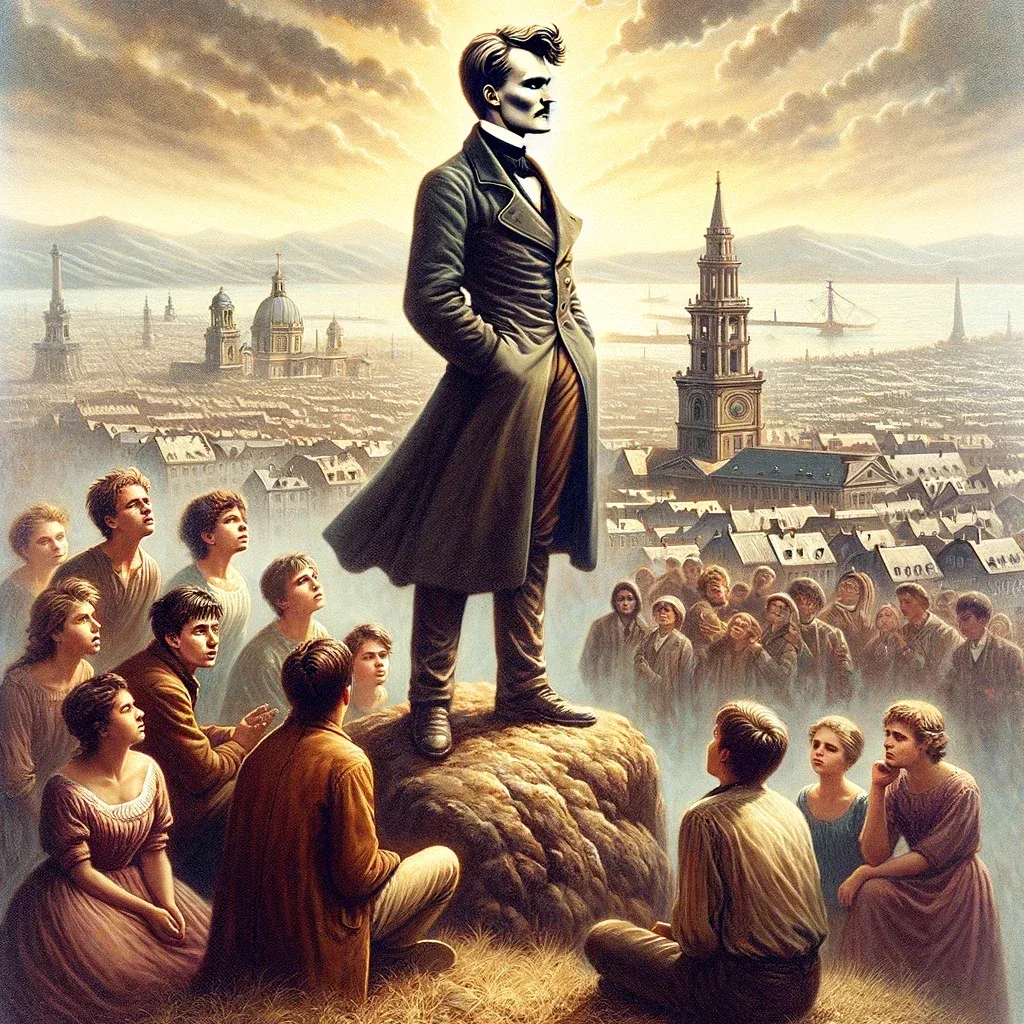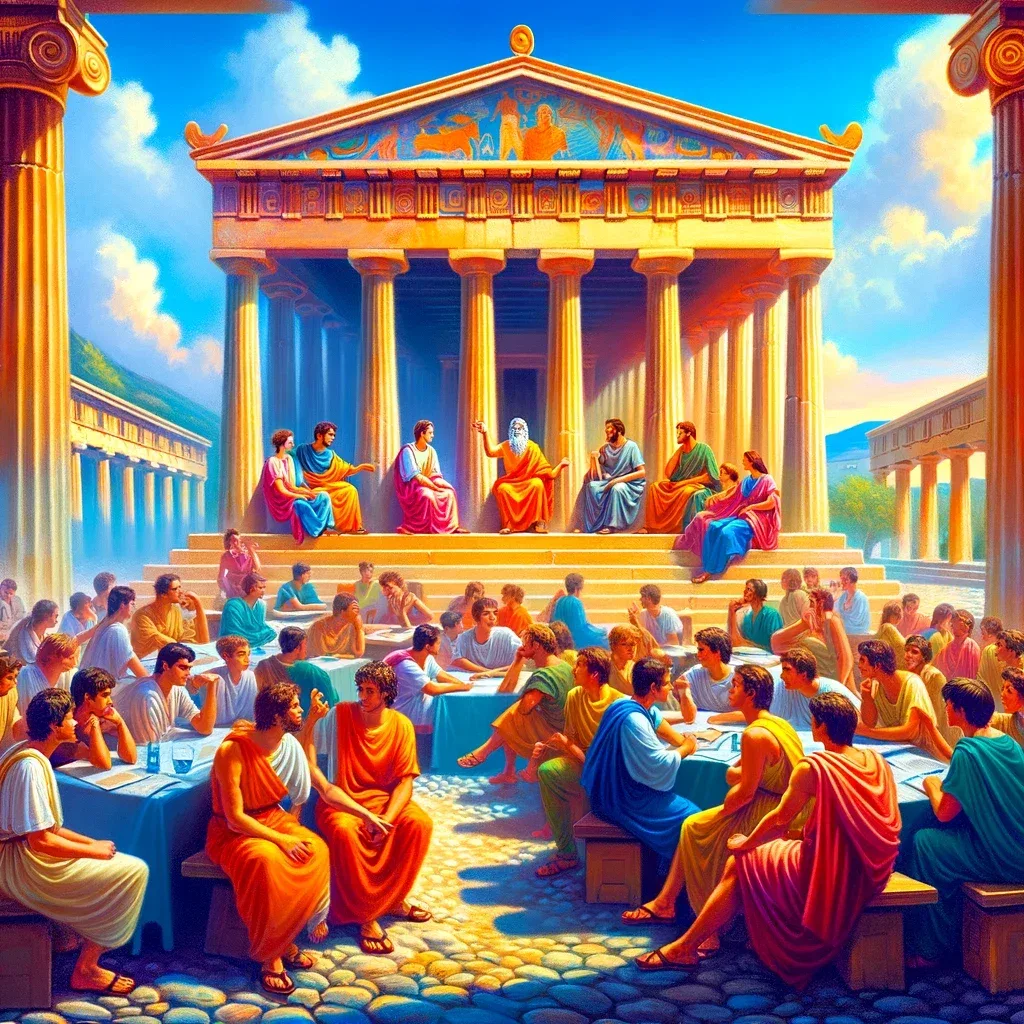Exploring the conceptions of Socrates, Nietzsche and Foucault about youth is diving into a rich and diverse philosophical universe. Each of these thinkers, although separated by different times and contexts, offers a unique insight into the personality and character of youth. This article aims to unveil the complexities and nuances of this youthful personality from the perspective of these three giants of thought. Through an in-depth analysis of his works and ideas, we will seek to understand the personality attributed to youth by Socrates, Nietzsche and Foucault, exploring how these views intertwine and differentiate themselves.

Socrates: The Incessant Questioning of Youth

Innate Curiosity and the Questioning Spirit
Socrates, the Athenian philosopher, is often associated with youth because of his dialectical method of questioning. He believed that young people have an innate curiosity and a questioning spirit, fundamental characteristics for the development of philosophy. For Socrates, youth was a period of intellectual and moral formation, where the search for truth and knowledge was paramount.
The Desire for Knowledge and Self-Knowledge
Socrates encouraged young people to get to know themselves, defending the maxim “Know thyself”. He saw youth as a phase of personal and intellectual discovery, where questioning and reflecting on one's own existence and that of the world around was essential. His Socratic approach to dialogue and continual questioning is a testament to his belief in the ability and willingness of young people to pursue knowledge.
The Importance of Ethics and Morals
For Socrates, youth was also a crucial time for the development of ethical and moral values. Through dialogue, he sought to guide young people to a deeper understanding of concepts such as justice, virtue and kindness. His philosophy emphasized the importance of an examined life, and this was a lesson he especially wanted to impart to young people.
Nietzsche: Youth as Power and Rebellion

The Will to Power and Transgression
Friedrich Nietzsche, a XNUMXth century German philosopher, saw youth as a manifestation of the will to power. He believed that young people possess a vital energy and a desire to assert themselves in the world, characteristics that lead them to challenge and question established norms. For Nietzsche, youth is synonymous with rebellion, a phase of life where the questioning of conventions and the search for new values are intense.
Youth and the Creation of New Values
Nietzsche saw youth as a period of great creative potential. He believed that young people have the ability to create new values and ideas, breaking with obsolete traditions and morals. This vision is evident in his idea of the “Übermensch” (Superman), an ideal of humanity that young people could aspire to, characterized by the creation of new values and the transcendence of traditional limits.
The Free Spirit and the Search for Authenticity
Nietzsche valued the free and authentic spirit of youth. He saw young people as individuals seeking authenticity and meaning, capable of questioning established truths and living according to their own convictions. Youth, in his view, was a time of experimentation and self-discovery.
Foucault: Youth and Resistance to Power

Youth as an Agent of Social Change
Michel Foucault, a XNUMXth century French philosopher, focused on the relationship between power, knowledge and social identity. He considered youth as a crucial social group in resisting and challenging power structures. Foucault saw young people as agents of change, capable of questioning and transforming social and political dynamics.
Youth and the Construction of Identity
Foucault studied how social institutions shape identities, including youth. He argued that young people are in a constant process of constructing their identity, often in opposition to social norms and expectations. Youth, for Foucault, was a period of exploring one's identity and place in the social world.
Resistance and Freedom
Foucault emphasized the ability of youth to resist forms of domination and social control. He saw young people as bringing new forms of thought and action, challenging dominant practices and discourses. For Foucault, youth was a symbol of resistance and the search for freedom.
Conclusion
Through the lenses of Socrates, Nietzsche, and Foucault, we can see that youth is not just a phase of life, but a state of mind characterized by questioning, creativity, and resistance. Each of these philosophers, with their unique perspectives, highlights different aspects of youthful personality – from the Socratic quest for truth and knowledge, through Nietzsche's will to power and transgression, to Foucault's resistance and identity construction. These views offer us a rich and multifaceted understanding of youth, highlighting their vital role in society and the evolution of human thought.

References
- Plato. “Plato’s Dialogues”.
- Nietzsche, F. “Thus Spoke Zarathustra”.
- Foucault, M. “Discipline and Punish”.
Introduction to the FAQ
This FAQ is dedicated to clarifying the most common doubts about the article “Socrates, Nietzsche and Foucault believe that youth carries its own personality. What personality would that be?” Here, we explore in detail these three influential philosophers' views on youth, their characteristics, and the impact of these ideas on contemporary understandings of youth.






